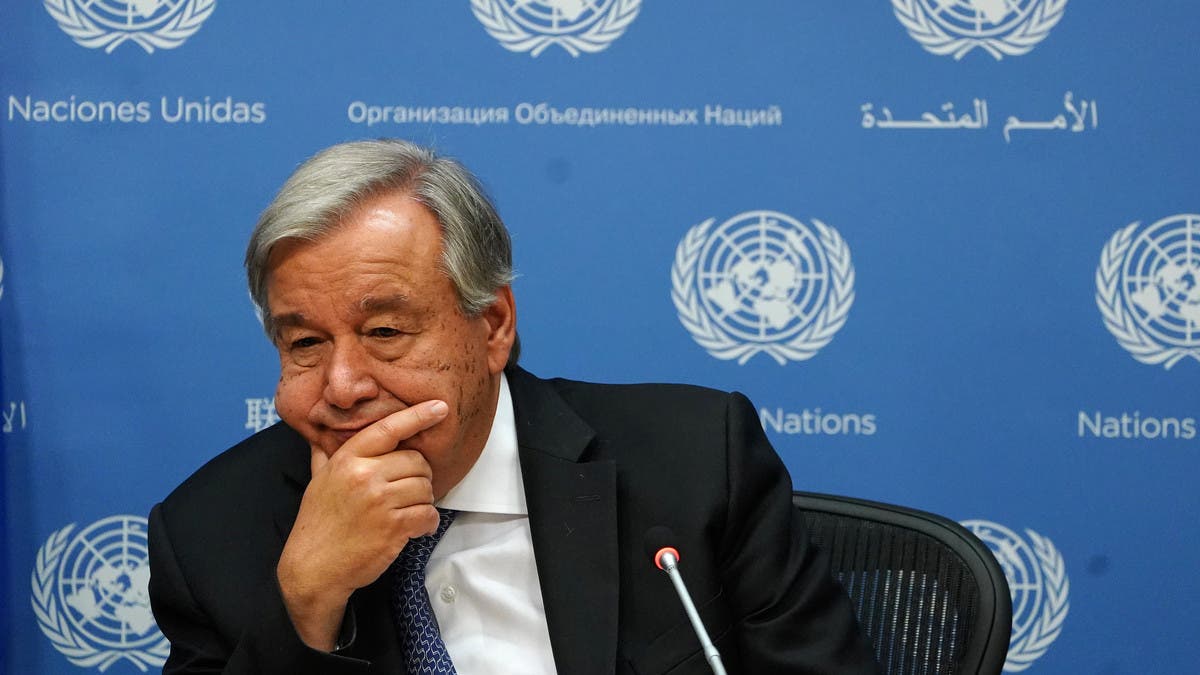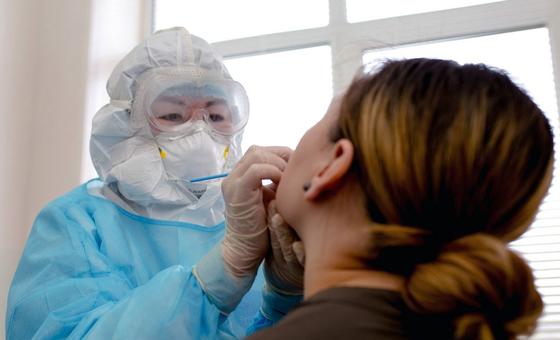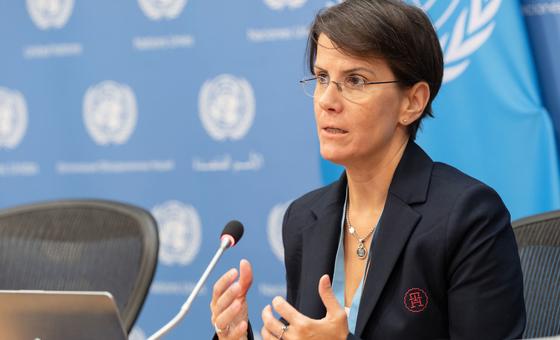As he starts his second term as UN secretary-general, Antonio Guterres said Thursday the world is worse in many ways than it was five years ago because of the COVID-19 pandemic, the climate crisis and geopolitical tensions that have sparked conflicts everywhere — but unlike US President Joe Biden he thinks Russia will not invade Ukraine.
Read the latest updates in our dedicated coronavirus section.
Guterres said in an interview with The Associated Press that the appeal for peace he issued on his first day in the UN’s top job on January 1, 2017 and his priorities in his first term of trying to prevent conflicts and tackle global inequalities, the COVID-19 crisis and a warming planet haven’t changed.
“The secretary-general of the UN has no power,” Guterres said. “We can have influence. I can persuade. I can mediate, but I have no power.”
Before he became UN chief, Guterres said he envisioned the post as being “a convener, a mediator, a bridge-builder and an honest broker to help find solutions that benefit everyone involved.”
He said Thursday these are things “I need to do every day.”
As an example, the secretary-general said this week he spoke to the African Union’s envoy Olusegun Obasanjo, twice with Kenya’s President Uhuru Kenyatta, and once with Ethiopia’s Prime Minister Abiy Ahmed in his attempt to get a cessation of hostilities in Ethiopia between the government and forces in the embattled Tigray region.
“I hope that we are in a situation in which it might become soon possible to have a cessation of hostilities and that is where I’m concentrating most of my efforts,” Guterres said.
As another example, Guterres said he has also been on the phone to try to get Mali’s military leaders who recently delayed elections scheduled for next month to 2026 to reduce the timetable. He said he spoke to Mali’s military ruler, President Assimi Goita, three presidents from the 15-nation West African regional group ECOWAS, Algeria’s prime minister and the African Union’s leader about “how to make sure that in Mali, there is an acceptable calendar for the transition to a civilian government.”
Guterres said he hopes Mali’s military leaders will understand that they need to accept “a reasonable period” before elections. The secretary-general believes voting should be held in “a relatively short amount of time,” and said: “All my efforts have been in creating conditions for bridging this divide and for allowing ECOWAS and the government of Mali to come to a solution with an acceptable delay for the elections.”
Guterres said the UN Security Council, which does have the power to uphold international peace and security including by imposing sanctions and ordering military action, is divided, especially its five veto-wielding permanent members. Russia and China are often at odds with the US, Britain and France on key issues, including Thursday on new sanctions against North Korea.
On the issue on every country’s front burner now — whether Russia, which has amassed 100,000 troops on Ukraine’s border, will invade the former Soviet republic — Guterres said, “I do not think Russia will invade Ukraine, and I hope that my belief is correct.”
What makes him think Moscow won’t invade when Biden and others believe Russian President Vladimir Putin will send troops into Ukraine?
“Because I do not believe in a military solution for the problems that exists, and I think that the most rational way to solve those problems is through diplomacy and through engagement in serious dialog,” Guterres said, stressing that an invasion would have “terrible consequences.”
The secretary-general said “we have been in contact, of course” with top officials in Russia, though the UN is not directly engaged in the Ukraine crisis.
Guterres is scheduled to deliver a speech to the 193 UN member nations in the General Assembly on Friday on his priorities for 2022.
He singled out three immediate priorities that “are worrying me enormously”: the lack of vaccinations in large parts of the world, especially in Africa; the need to reduce emissions by 45 percent in this decade to try to meet the international goal of trying to limit future global warming to 1.5 degrees Celsius (2.7 degrees Fahrenheit); and the “extremely unjust” financial situation in the world that favors rich countries.
Many developing countries have very few resources, high debts that are growing and they pay much higher interest rates than in Europe or North America, have no vaccines, and disproportionately “suffer the impacts of climate change,” Guterres said.
“We need a deep reform in our international financial system in order to make sure that there is more justice in the way resources are available to allow for the recovery (from COVID-19) to be possible everywhere,” he said.
On another major issue, Guterres stressed that the Afghan people can’t be collectively punished for “wrong things that are done by the Taliban,” so it is absolutely essential to massively increase humanitarian aid “because the Afghans are in a desperate situation with the risks of deaths by hunger” and disease in a frigid winter with COVID-19.
“More than half the population is in desperate need of humanitarian aid,” he said, and money needs to be injected into the economy to ensure Afghan banks operate and doctors, teachers, engineers and other workers are paid to prevent the country’s economic collapse.
The issue of recognition of the Taliban government is up to member states, Guterres said, but the UN has been pressing the Taliban, which took power in August as US-led NATO forces were departing after 20 years, to ensure human rights, especially women’s rights to work and girls’ education, and to make the government more inclusive and reflective of Afghanistan’s diverse population.
The secretary-general said he will be attending the Beijing Olympics in February “which is not a political act” but “to be present when all the world comes together for good — for a peaceful message.”
Read more:
Cheaper COVID-19 pill to be available to 105 developing countries after massive deal
Pakistan records most daily COVID-19 cases since pandemic began
Valneva COVID-19 vaccine neutralizes omicron in early lab tests

 World2 years ago
World2 years ago
 World2 years ago
World2 years ago
 Entertainment7 years ago
Entertainment7 years ago
 World7 years ago
World7 years ago
 Entertainment7 years ago
Entertainment7 years ago






